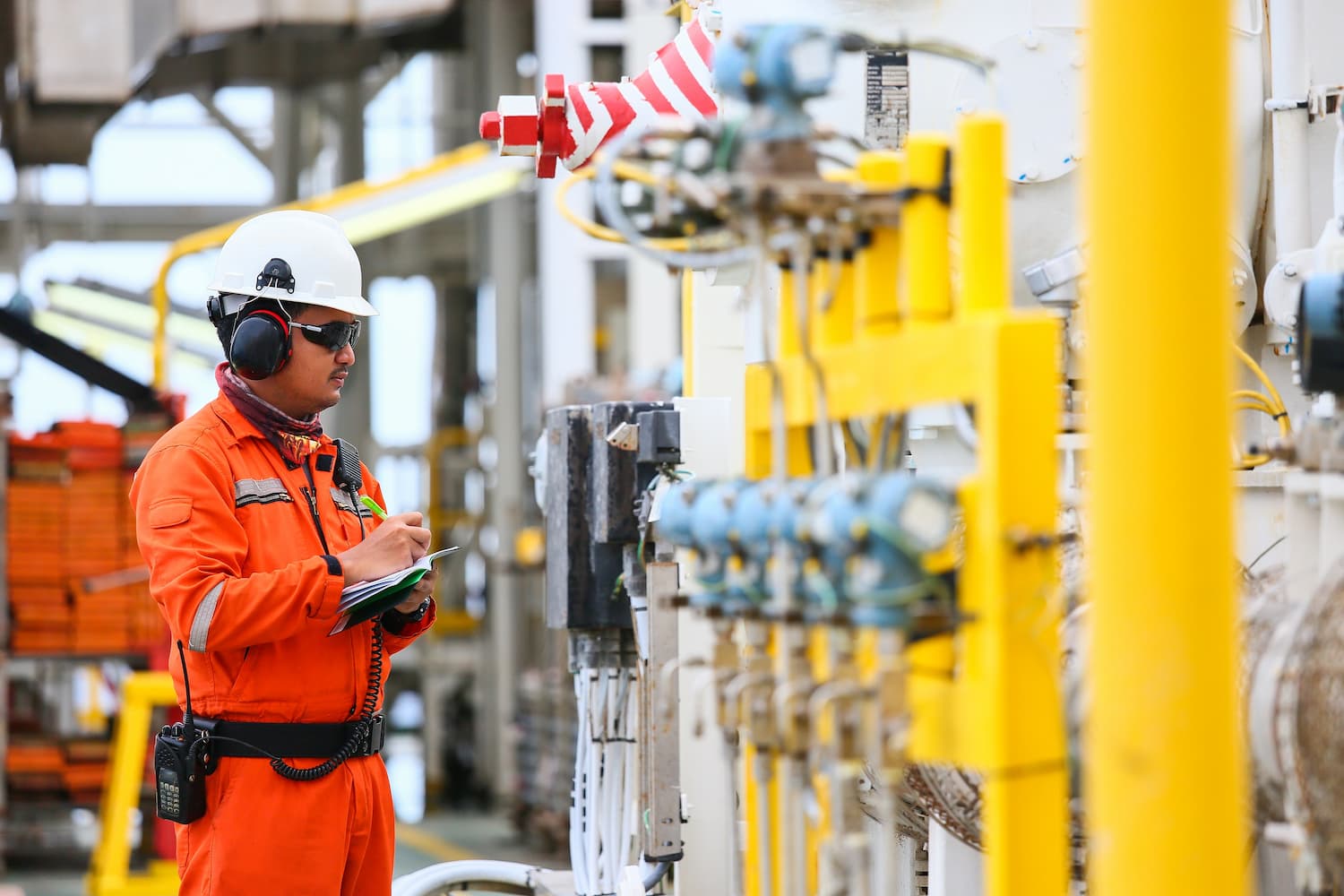Site reliability engineers, or SRE engineers, are coding and software automation experts who optimize information technology (IT) infrastructure and processes. They do this by configuring smart codes, tools and applications that streamline operations and enhance productivity from the beginning to the end of the software development lifecycle (SDLC). Google introduced the SRE engineering role in the early 2000’s to operate at the crossroads between software development and IT operations, or DevOps, and it has been growing in popularity ever since.
The SRE role and responsibilities include software automation, monitoring, troubleshooting, problem solving, documentation, and team collaboration. Specifically, the role requires a high level of expertise in writing code to automate processes such as log analysis and testing, while responding to any new DevOps issues that arise. Automating processes allows the developers to focus on bringing new features quickly to production and reduces the burden on the IT operations team. An SRE engineer applies software engineering principles to ensure reliable and scalable performance of software and IT services. Site reliability engineers regularly work alongside teams of software developers and IT engineers, guiding them along the development.
Site reliability engineering is essential for any organization that needs to continuously improve their people, processes, and technology. SREs help teams to transition to a true DevOps culture, offering numerous benefits to increase speed and reliability. Popular job opportunities for site reliability engineers include at major tech companies, for eCommerce companies, or in payments, banking, and medical software development. As technology continues to evolve, so will site reliability engineering. This means, there will be only more opportunities for SRE engineers!
Apply now for a job as a site reliability engineer!
Projektarbeit bei namhaften Kundenunternehmen (w/m/d)
Location: Düsseldorf
Branche: Information Technology
Expertise: IT & Shared Services
Experience: 1 years
Sie möchten nicht irgendein Projekt - sondern eines, das wirklich etwas bewegt? Bei Brunel arbeiten Sie dort, wo Innovation entsteht: direkt bei unseren Kundenunternehmen, führend im Hochtechnologie-Umfeld. Ob bei der Entwicklung nachhaltiger Mobilitätslösungen, dem Ausbau erneuerbarer Energien, der Digitalisierung medizinischer Geräte oder der Optimierung industrieller Prozesse - Sie gestalten den Fortschritt aktiv mit. Je nach Qualifikation und Interessen übernehmen Sie Verantwortung in Bereichen wie: Forschung & Entwicklung, Konstruktion und Simulation Software- und Systementwicklung (z. B. Embedded, Web, App, Cloud) Automatisierung, Elektrotechnik oder Test und Validierung Qualitätssicherung, Projektmanagement oder technische Dokumentation Was Sie erwartet: Projekte, die Substanz haben. Technologien, die unsere Zukunft prägen. Und ein Umfeld, das Ihre Stärken fördert.
Elektrotechniker (w/m/d)
Branche: Infrastructure
Expertise: Production & Manufacturing
Experience: 2 years
Planung, Entwicklung und Betreuung elektrotechnischer Systeme, Komponenten und Schaltungen Erstellung von Stromlaufplänen, Schalt- und Verdrahtungsunterlagen (z. B. mit EPLAN, WSCAD oder E3.series) Auswahl und Auslegung elektrischer Betriebsmittel nach technischen und normativen Vorgaben Durchführung von Prüfungen, Messungen und Fehleranalysen an elektrischen Systemen Unterstützung bei Inbetriebnahmen, Tests und technischen Abnahmen Enge Zusammenarbeit mit Konstruktion, Produktion, Einkauf und externen Dienstleistern
Softwareentwickler (w/m/d)
Branche: Infrastructure
Expertise: IT & Shared Services
Experience: 2 years
Entwicklung und Implementierung von Steuerungs- und Automatisierungssoftware für Maschinen und Anlagen Erstellung, Pflege und Test von SPS-Programmen (z. B. in TIA Portal, STEP 7, CoDeSys, TwinCAT o. Ä.) Inbetriebnahme, Fehleranalyse und Optimierung von Steuerungssystemen vor Ort oder remote Erstellung von Softwaredokumentationen, Bedienkonzepten und Funktionsbeschreibungen Integration von HMI/SCADA-Systemen sowie Kommunikation mit übergeordneten Systemen Enge Zusammenarbeit mit Elektrokonstruktion, Mechanik und Projektmanagement
Qualitätsingenieur (w/m/d)
Branche: Infrastructure
Expertise: Quality Management
Experience: 2 years
Ihre Hauptaufgabe ist die Entwicklung und Betreuung von Qualitätssicherungsprozessen sowie einzelner Prüfanweisungen und Dokumentationen. Sie betreuen eigenverantwortlich die Entwicklung von der Testphase bis zur Freigabe der Produkte. In Ihrer Position als Qualitätsingenieur gewährleisten Sie zudem die Einhaltung und Umsetzung der gültigen Qualitätsvorgaben und Prüfanweisungen. Darüber hinaus übernehmen Sie das Projektcontrolling, die Terminverfolgung und die Koordination mit der Produktionsleitung und anderen Spezialisten. Ihr Aufgabengebiet wird mit der Dokumentation der Prüfergebnisse abgerundet.
Entwicklungsingenieur (w/m/d)
Branche: Infrastructure
Expertise: Planning & Testing
Experience: 2 years
Entwicklung und Optimierung komplexer Produkte und Systemkomponenten bis zur Serienreife Durchführung von Machbarkeitsanalysen, technischen Bewertungen und Konzeptentwicklungen Sicherstellung der Einhaltung technischer Normen sowie kundenspezifischer Anforderungen Erstellung und Pflege technischer Dokumentationen und Spezifikationen Abstimmung technischer Inhalte mit internen Fachbereichen und externen Partnern Anwendung moderner Entwicklungsmethoden (z. B. FMEA, Systems Engineering, Simulation)
Systemingenieur (w/m/d)
Branche: Infrastructure
Expertise: Planning & Testing
Experience: 2 years
Systementwicklung und -integration über den gesamten Produktlebenszyklus hinweg Erstellung und Pflege von Systemanforderungen, Architekturen und Schnittstellendefinitionen Durchführung von Systemanalysen, Risikobewertungen und technischen Bewertungen (z. B. FMEA, FTA) Koordination technischer Inhalte zwischen Entwicklung, Qualität, Produktion und externen Partnern Unterstützung bei Verifikations-, Validierungs- und Testaktivitäten auf Systemebene Anwendung modellbasierter Entwicklungsmethoden und strukturierter Vorgehensmodelle (z. B. V-Modell, MBSE, SysML)
Projektingenieur (m/w/d)
Location: Deutschland
Branche: Infrastructure
Expertise: Production & Manufacturing
Experience: 2 years
Planung, Koordination und Überwachung technischer Projekte über alle Phasen hinweg Erstellung und Pflege von Projektplänen, Terminplänen und Ressourcenübersichten (z. B. mit MS Project, Primavera o. Ä.) Technische Schnittstellenkoordination zwischen Entwicklung, Einkauf, Produktion und Qualität Verfolgung von Projektfortschritt, Kosten und Risiken sowie Durchführung von Abweichungsanalysen Unterstützung bei der Erstellung technischer Spezifikationen, Dokumentationen und Statusberichte Enge Abstimmung mit internen Stakeholdern und externen Partnern zur Sicherstellung termingerechter Umsetzung
Operativer Einkauf (w/m/d)
Branche: Infrastructure
Expertise: Purchase
Experience: 2 years
Selbständige Abwicklung der Bestellprozesse (im SAP) und Dokumentation der Einkaufstransaktionen Erfassen von Lieferantenstammdaten Nachverfolgung offener SAP-Transaktionen oder Lieferantenanlagen Einholung von technisch-/kommerziellen Angeboten und deren Auswertungen (z. B. Preisvergleiche) Durchführung der Terminverfolgung inkl. Mahnwesen (z. B. Angebotsbindefristen, Lieferungen, Auftragsbestätigungen, Zertifikate)
Vermessungsingenieur (w/m/d)
Location: Wuppertal
Branche: Infrastructure
Expertise: Planning & Testing
Experience: 2 years
Werkstudent IT Support (w/m/d)
Location: Wuppertal
Branche: Machine & Plant Design
Expertise: IT & Shared Services
Experience: 1 years
Unterstützung bei der Entwicklung und Implementierung von IT-Lösungen Mitarbeit in Projekten zur Systemintegration und Netzwerktechnik Unterstützung im IT-Support bei der Fehleranalyse und -behebung Mitwirkung bei Softwarelösungen und Updateproblemen Durchführung von System- und Funktionstests im Rahmen von IT-Projekten
Common site reliability engineer roles and responsibilities
A site reliability engineer is responsible for performing a range of important software engineering tasks. Responsibilities may include:
- Analyzing DevOps processes and IT architecture for areas of optimization for continuous improvement;
- Monitoring symptoms documenting every action to automate it through code;
- Improving operational processes and design, build, and maintain core infrastructure for scaling;
- Being on-call to respond to incidents that impact product or software availability;
- Troubleshooting and debugging issues to fix them to ensure high productivity;
- Preventing incidents from happening;
- Planning and facilitating IT infrastructure growth;
- Providing support to, and collaborating with, engineers, developers, and specialists to develop and deploy the codes, tools, and applications in software products;
- Tracking progress and documenting knowledge and processes;
- Delivering results in line with agreed SRE engineering project timelines and budgets;
- Delivering software engineering outputs in compliance with relevant requirements, and in line with customer needs and demands;
- Leading trainings on software engineering and development as needed.
Qualifications for site reliability engineers
SRE engineers should have at least a Bachelor’s degree in Software Engineering, Computer Science, or related.
Additional supporting skills and experience include:
- 2-4+ years of software engineering experience;
- Solid understanding of coding, DevOps, and IT infrastructures using programming languages such as Python, Go, or Ruby;
- Excellent analytical and natural problem-solving skills;
- Proficiency in using diverse software, including Chef, Ansible, Terraform, SaltStack, GitLab CI/CD, Kubernetes, AWS CloudWatch, NewRelic, PagerDuty, VictorOps, Jira and Trello, and similar;
- Proven experience in project and team management;
- Strong verbal and written communication skills to be able to work easily with developers, engineers, and other diverse team members.



